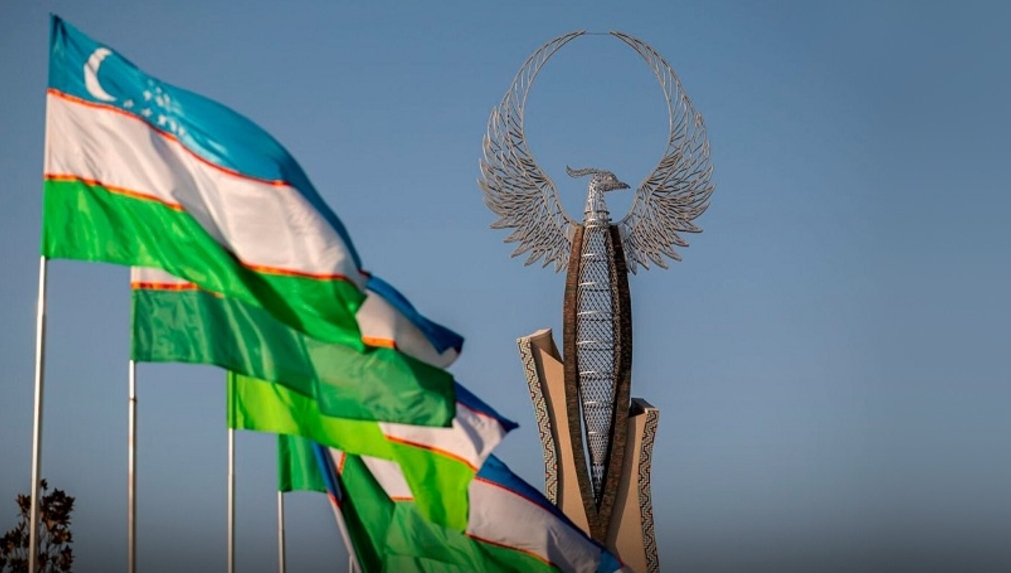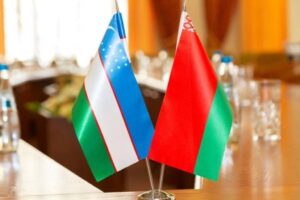Uzbekistan’s Open and Constructive Foreign Policy is Based Primarily on National Interests

Uzbekistan’s foreign policy is based on the norms and principles of its Constitution, the laws “On the Basic Principles of Foreign Policy of Uzbekistan”, “On International Treaties of the Republic of Uzbekistan”, “On Defense”, the Military Doctrine, on the principles and objectives of the United Nations and the Organization for Security and Cooperation in Europe, along with obligations arising from international treaties and agreements of the country, ratified by the Oliy Majlis (Supreme Assembly).
Adopted during a referendum in 2023, the new edition of the Constitution introduced a range of new norms that define the basic principles of foreign policy.
In particular, as the Basic Law stipulates, in the international community, Uzbekistan strives first and foremost to cement and develop friendly relations with neighboring nations based on principles of partnership, mutual support and peace.
In addition, under Article 17 of the Constitution, in its foreign policy the country shall adhere to the principles of sovereign equality of states, non-use of force or threat of force, inviolability of borders, territorial integrity of states, peaceful settlement of disputes, non-interference in the internal affairs of other states and other generally recognized principles and norms of international law. Article 18 stipulates that the Republic of Uzbekistan pursues a peaceful foreign policy aimed at the comprehensive development of bilateral and multilateral relations with states and international organizations.
Mutually advantageous ties have been established with countries distant and near. In recent years, the Uzbek leadership has made more than 100 senior and high-level visits to leading nations of the world like the USA, EU countries, Russia, China, Japan, South Korea, Turkey, Iran, United Arab Emirates, among others.
Uzbekistan has been active participant of regional and international organizations, including specialized agencies and institutions of the UN, the Commonwealth of Independent States, Shanghai Cooperation Organization, the Organization of Turkic States, the Organization of Islamic Cooperation, and the Economic Cooperation Organization. The country received observer status in the Eurasian Economic Union.
For the first time in its history, Uzbekistan has been elected member of the UN Human Rights Council, and also successfully completed the task of chairmanship in the Commonwealth of Independent States.
In addition, in recent years, bonds with countries of the European Union have intensified significantly and acquired a new meaning.
Relations with the European Bank for Reconstruction and Development were restored. Those with the major economic, financial and investment institutions in the world, such as the World Bank, the International Monetary Fund, the Asian Development Bank, and the Islamic Development Bank, are steadily developing. Proactive economic diplomacy has become a priority direction of the new foreign policy of Uzbekistan, along with the vision of transforming Central Asia into a region of peace and tranquility, stable development and good neighborliness.
Uzbekistan pays special attention to the advancement of mutually beneficial interaction with adjacent nations and the consolidation of trade and economic ties with them. Thus, in 2022-2023 alone, more than 150 top and high-level events took place in Central Asia. A unique mechanism for the development of regional cooperation – consultative meetings of heads of state in the region – has been introduced.
Practical work has been underway to ensure trade, economic, transport and transit relations among the countries of Central Asia, security and stability issues, those related to state borders, fair use of water resources, consolidation of cultural and humanitarian relations, friendship and good neighborliness among the states and peoples.
Uzbekistan has been active in authoring initiatives of global importance. New political initiatives in an open, pragmatic and constructive spirit received support from the international community. At the initiative of President of the Republic of Uzbekistan Shavkat Mirziyoyev, 4 important resolutions have been passed by the UN General Assembly.
Uzbekistan attaches great significance to cooperation with the principal international organization of the world, which it has identified as one of the priorities of its foreign policy.
In the current intricate global circumstances, the role and responsibility of the UN have been never been so essential as a universal institution designed to unite the efforts of member states to ensure peace and security, stability, protection of human rights and systemic development at the international level in the face of increasing threats to humanity.
Uzbekistan actively participates in the work of the UN and its specialized institutions, including the World Health Organization, International Labor Organization, World Intellectual Property Organization, UNESCO, World Food Program, World Bank, IAEA and others.
The Uzbekistan-2030 Strategy defines the tasks of strengthening interaction with Asia-Pacific countries, increasing the volume and range of exports to regional markets, and increasing the influx of investments into our country.
Efforts are also underway to further enhance relations with the countries of South Asia, the Middle East and Africa, establish mutually beneficial cooperation in new and promising areas, and form transport and logistics corridors connecting the regions and allowing Uzbekistan to enter world markets.
One of the most important tasks of legislative bodies in overseeing the country’s foreign policy is to improve the regulatory framework for the effective implementation of foreign policy and foreign economic activity.
The role and importance of the bicameral parliament, the highest representative body of Uzbekistan, has increased in foreign policy more than ever. In recent years, the geography of international relations of the chambers of the Oliy Majlis has expanded significantly, and cooperation with legislatures of other countries and international inter-parliamentary associations has risen to a new level. Thus, during 2015-2019 there were inter-parliamentary groups for cooperation with the parliaments of 28 countries, while in 2020 they numbered 43. Currently, the chambers of the Oliy Majlis have set up bilateral groups of friendship and cooperation with the parliaments of 58 countries. There is also a separate inter-parliamentary committee for cooperation with the European Parliament.
In particular, in 2020, to further strengthen the role of parliament in the development of relations with foreign countries, the Kengashes (Councils) of the chambers of the Oliy Majlis of the Republic of Uzbekistan adopted the Concept of Parliamentary Diplomacy. The priority objectives of which are the development of cooperation with other national parliaments, strengthening inter-parliamentary relations to study their legislative experience, ensuring the active participation of the Oliy Majlis in the activities of international inter-parliamentary organizations, informing the international community about the reforms carried out in the country and promoting Uzbekistan’s international initiatives.
In order to further improve cooperation with the parliaments of foreign countries, Kengashes of the chambers of the Oliy Majlis of Uzbekistan adopted a joint resolution on intensifying the work of groups and commissions of the Oliy Majlis for cooperation with the parliaments of foreign countries and expanding practical interaction.
Another direction is to reinforce parliamentary control over the fulfillment of obligations under international treaties of the Republic of Uzbekistan. Thus, systemic efforts are in full swing to achieve national goals and objectives in the field of sustainable development.
Established by the Legislative Chamber and the Senate of the Oliy Majlis, a special parliamentary commission exercises parliamentary control over the implementation by the relevant ministries and departments of the tasks set by the government to achieve national sustainable development goals. At the same time, the assessment of the effectiveness of achieving the set goals is carried out in accordance with corresponding indicators.
The use of modern methods of parliamentary oversight in the realization of sustainable development goals and the use by parliamentarians of the capacities of international organizations will undoubtedly contribute to the successful achievement of national goals and objectives in sustainable development of Uzbekistan until 2030 and will have a positive impact on improving the well-being of the people.
That is, the national legislature today has been entitled broad opportunities to promote national interests on the world stage, acting as a proactive participant in international relations. And the Oliy Majlis aims to further develop international and inter-parliamentary relations for the sake of maintaining peace and security and achieving sustainable development.


